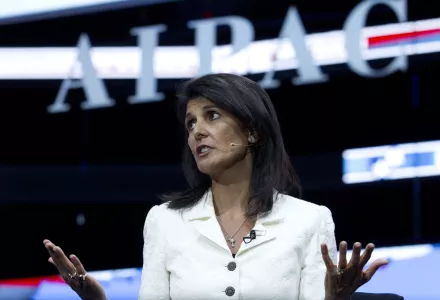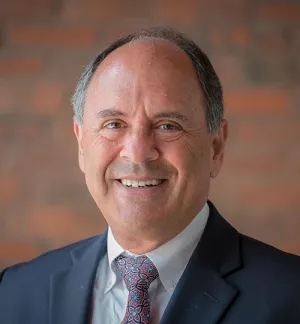
Note
A Hebrew-language version of the op-ed appeared in Haaretz on April 5, 2017. The translation was provided by the author.
A well-known, if not particularly attractive human trait, is to be dazzled by success from afar, to seek proximity to it, embrace it, and ultimately become jealous and try to undermine it. Such is the case of AIPAC, the pro-Israel lobby. Critics of the government's policy, in Israel and among the Jewish community in the United States, are jealous of AIPAC's success, fail to understand that it is a vital strategic asset, and are trying to transfer the bitter battle between the left and the right in Israel to the Washingtonian arena. Their intentions may be good, but there is only one place to wage the vital struggle over Israel's future: in Israel.
Haaretz correspondent, Chemi Shalev, is a brilliant observer of American affairs, but this time he, too, appears to have been swept along by some of the criticism. In an article in Haaretz on March 31, Shalev wrote that AIPAC's annual conference, held recently in Washington, presented "an Israeli paradise" and celebrated Israel's successes, while focusing on the military and diplomatic threats and downplaying the ills of Israel society and the occupation. As one who attends and speaks at the conference each year, I can say that this is a generally accurate portrayal—and that it is precisely as it should be.
The source of the disagreement is rooted in Shalev's portrayal of AIPAC as an Israeli lobby. It is not. It is an American pro-Israel lobby and that is an enormous difference, one which reflects an entire strategy, not what he called "forced naïveté." AIPAC has one and only one role, which it fulfills with great success: to strengthen the U.S.-Israeli relationship, without regard to those in power in either country, or their domestic challenges.
There are 125 billion reasons why this approach has proven to be the correct one, a number which will grow to about 170 billion by the end of the next decade: this figure is the total expected dollar value of U.S. aid to Israel by that time, a level of aid exceeding that granted to any other country since World War II. It is worth giving this a moment or two of thought. Many Israelis have come to view U.S. aid almost as a gift from heaven, or is if we have become a state in the American union and thus deserve it. We are not, and few in Israel understand the magnitude of the effort AIPAC devotes each year to ensuring the ongoing flow of aid.
AIPAC's work is vital, even existential, for Israel. It is translated into combat aircraft, "Arrow" missiles and the "Iron Dome" anti-rocket system, tanks, naval vessels, artillery, rifles, and even uniforms and boots.
AIPAC's work is translated into close strategic cooperation, inter alia, in regard to the ongoing threat from Iran, into vital intelligence cooperation, joint military exercises, and the pre-positioning of American weapons in Israel.
Its work is translated into the joint effort to bring peace and stability to the Middle East and into the fact that the United States is almost the only country which supports Israel's demand for border modifications, stringent security guarantees, recognition of Israel as the nation-state of the Jewish people, and prevention of the so-called "right of return." With U.S. help, we reached peace with Egypt and Jordan and it is likely that the United States will play a vital role in any future peace agreement with the Palestinians.
AIPAC's work is translated into defense of Israel in the face of an array of diplomatic threats in the UN and other international organizations, including anti-Israeli resolutions in the Security Council, attempts to impose sanctions on Israel and to eliminate the strategic capabilities it is thought to possess, international delegitimization efforts, and much more.
AIPAC's annual conference is merely the tip of the iceberg, the publicly visible apex of a remarkable effort conducted throughout the year by thousands of volunteers and a professional staff, vis-à-vis the administration, Congress and even state and local levels. The conference is not necessarily the primary activity, but a component of a calculated and integrated strategy designed to ensure the long-term vitality of the bilateral relationship. It has two primary and complementary objectives: to constitute a highly impressive demonstration of political clout, in which thousands of people gather to identify with Israel and demand that their representatives support it, and to both maintain the level of enthusiasm among existing activists and mobilize new ones. It is not designed to be a platform for a critical analysis of Israel's future, although some of that takes place as well, but to constitute powerful political pageantry to promote the bilateral relationship.
It is not by chance that so many members of the administration and Congress trouble themselves each year to attend the conference and to repeat those statements of identification, which sound so banal to uninformed Israeli ears, but which are such an important part of the American political system. That is how one builds a lobby in a vast country of 330 million people.
For many of us, who are so consumed by Israel's febrile present, it is hard to understand that most of the American public, including much of the Jewish community is not that interested in our affairs, and even indifferent to them. It is therefore necessary to promote interest and motivation to engage in pro-Israel activism, to excite. One does not build identification by emphasizing the occupation, or Israel's domestic ills, but by emphasizing the positive, and it is worth remembering, even in these troubled times, that Israel has much to be proud of. AIPAC is undoubtedly not flawless, but we should be deeply grateful to those who work day and night to ensure Israel's security.
The creeping annexation of the West Bank is an existential threat to the future of the Zionist enterprise, and there is no alternative to separation from the Palestinians. The battle over Israel's future national course, however, should be waged at home, not in Washington, and AIPAC should be kept out of it. That is not its role.
Statements and views expressed in this commentary are solely those of the author and do not imply endorsement by Harvard University, the Harvard Kennedy School, or the Belfer Center for Science and International Affairs.
Freilich, Chuck. "Keep AIPAC Out Of It." Belfer Center for Science and International Affairs, Harvard Kennedy School, April 5, 2017



